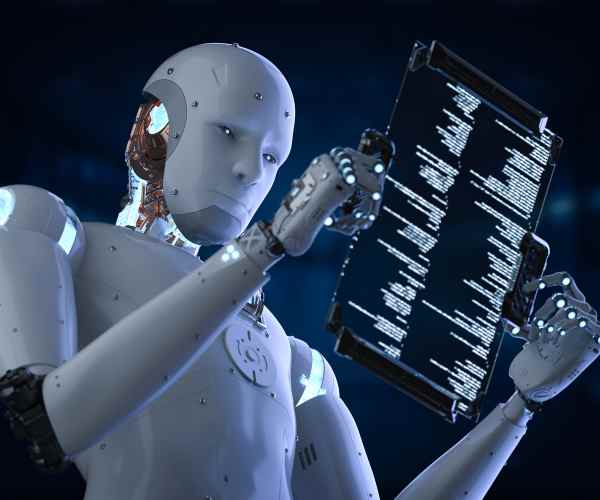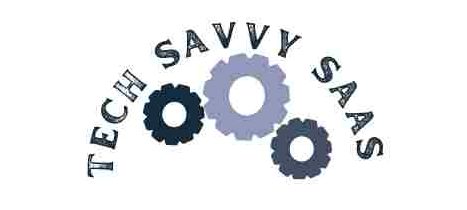In today’s digital age, artificial intelligence (AI) has become a pivotal element in mimicking the nuanced operations of the human mind and enhancing our decision-making processes. At the forefront of this technological revolution stands Claude AI, a cutting-edge development by Anthropic. This AI marvel is renowned for its unique approach to comprehending and generating responses that resonate deeply with human values. But how does it manage to align so closely with ethical standards and human rights? This is where the intriguing concept of constitutional AI comes into play, guiding the interactions of Claude AI to ensure they uphold the highest ethical and moral standards.

What is Claude AI?
Claude AI represents a monumental leap in the field of artificial intelligence, serving as a generative, pre-trained transformer that showcases an unparalleled ability to understand and generate text that mirrors human conversation. Developed by the innovative team at Anthropic, Claude AI stands as a testament to the potential of large language models (LLMs) in revolutionizing how machines understand and interact with humans.
Tracing the Origins: From Psychoanalysis to Constitutional Principles
The inception of Claude AI can be traced back to a blend of sophisticated psychoanalysis techniques and the foundational principles of a constitution. This blend aims to embed deep ethical considerations and human values into the very fabric of AI interactions. By drawing inspiration from the universal declaration of human rights, Claude AI is designed to navigate the complex terrain of human ethics, ensuring that every response and interaction is not only relevant and informative but also respectful and ethically sound.
The Evolutionary Path of Claude AI
The evolution of Claude AI is a testament to the relentless pursuit of creating AI that not only understands the text but also the subtleties and nuances of human values and ethics. This journey began with the intricate process of training Claude AI on a diverse and expansive dataset, encompassing a wide array of topics, scenarios, and human interactions. Each piece of data was carefully selected and curated to ensure that Claude AI’s training process was deeply rooted in understanding the human condition, making it capable of generating responses that are not only accurate but also empathetic and ethically aligned.
Furthermore, the incorporation of feedback mechanisms and human reviewers into Claude AI’s development process has been crucial. These mechanisms allow for continuous refinement and adjustment, ensuring that Claude AI’s outputs remain in harmony with human values. For example, through the iterative process of reinforcement learning from human feedback (RLHF), Claude AI is fine-tuned to better understand the intricacies of human ethics and preferences, making its responses more aligned with what is considered appropriate and valuable by humans.
The story of Claude AI’s evolution is not just about technological advancements but also about a profound commitment to embedding ethical considerations into AI. By integrating principles from psychoanalysis and constitutional guidelines, Claude AI represents a significant stride towards creating AI that truly understands and respects human values, setting a new standard for ethical AI development.
How Does Constitutional AI Power Claude AI?
Constitutional AI is an innovative approach that integrates the Universal Declaration of Human Rights and ethical standards directly into the foundation of artificial intelligence systems. Its primary aim is to ensure that AI technologies like Claude AI not only excel in their functional capabilities but also in ethical reasoning and decision-making. By embedding these principles, constitutional AI guides AI behavior to align with human values, safeguarding against potential ethical pitfalls.
The Symbiosis Between Constitutional AI and Claude AI
Integrating constitutional AI into Claude AI can be likened to embedding a moral compass within the AI. This process influences every aspect of Claude AI’s operation, from its initial training phase to its real-time interactions with users. For instance, during the training phase, data sets are curated to include examples that highlight ethical decision-making, respect for human rights, and adherence to social norms. This ensures that Claude AI’s responses are not just technically accurate but also ethically sound and aligned with human values.
Real-life Applications of Claude AI: A Testament to Its Versatility
- Psychoanalysis: Claude AI has been used to provide preliminary psychological insights, helping therapists understand their patients’ needs better before beginning treatment. By analyzing text inputs from patients, Claude AI can identify patterns and themes that might need attention, always within the ethical boundaries set by Constitutional AI.
- Education: In the realm of education, Claude AI acts as a personalized tutor, offering explanations and resources that are tailored to the student’s learning pace and style. Its adherence to ethical guidelines ensures that the content is not only informative but also positive and encouraging, fostering a safe learning environment.
- Customer Service: Claude AI revolutionizes customer service by providing responses that are not only prompt and accurate but also considerate and ethically aware. This capability ensures that customers feel valued and respected, leading to improved satisfaction rates.
The mechanics behind Claude AI
At the heart of Claude AI’s remarkable capabilities lies its sophisticated technological infrastructure, which includes state-of-the-art neural networks and an attention mechanism. These components enable Claude AI to process and understand large volumes of text, discerning the underlying context and nuances that are crucial for generating human-like responses.
The Role of Large Language Models (LLMs) and Self-Supervised Learning
Claude AI is powered by large language models (LLMs), which are trained on vast datasets comprising a diverse array of texts from the internet. This extensive training enables Claude AI to have a broad understanding of human knowledge, language, and, importantly, values. Self-supervised learning further enhances this capability by allowing the model to learn from the data itself, identifying patterns and relationships without needing explicit examples of correct answers.
The training process at Claude AI is meticulously designed to incorporate a wide range of knowledge and understanding. For example, it includes data sets from literature, scientific research, and everyday conversations, ensuring that Claude AI can respond appropriately to a vast array of inquiries and scenarios. This process is not static; continuous learning from new data and human feedback allows Claude AI to evolve over time, refining its responses to ensure they remain relevant and respectful of human values.
How Does Claude AI Learn from Its Training Data?
Claude AI’s learning process is a marvel of modern artificial intelligence, deeply rooted in its interaction with an expansive and diverse set of training data. This data encompasses a wide spectrum of human knowledge and interactions, from scholarly articles to everyday conversations. The essence of Claude AI’s learning lies in its ability to parse through this vast information, extracting patterns, nuances, and the underlying sentiment to generate responses that are not just accurate but also contextually relevant and ethically aligned.
A pivotal aspect of Claude AI’s training regime is the incorporation of human feedback, which plays a crucial role in refining and enhancing its decision-making capabilities. This feedback loop enables the model to understand the subtleties of human preferences, making adjustments to ensure that its responses are helpful, harmless, and closely aligned with ethical guidelines. For instance, when users provide feedback indicating that a certain response was not helpful or appropriate, this information is used to adjust Claude AI’s algorithms, ensuring future responses are more in tune with human expectations.
The integration of reinforcement learning from human feedback (RLHF) significantly bolsters Claude AI’s ability to generate high-quality outputs. Through RLHF, Claude AI is exposed to scenarios where human reviewers rate the appropriateness and helpfulness of its responses. This feedback is then used as a guide to adjust and improve its algorithms. For example, if a response to a sensitive question is deemed insensitive or inappropriate, RLHF allows Claude AI to learn from this feedback, adjusting its model to prioritize responses that are considerate and aligned with human values in similar future inquiries.
Evolution and Adaptation of Claude AI
The adaptive nature of Claude AI is one of its most remarkable features, allowing it to evolve in response to continuous feedback from both users and human reviewers. This evolution is not merely about expanding its knowledge base but also about refining its understanding of human values and ethics. For instance, over time, Claude AI has become more adept at detecting and avoiding biases in its responses, thanks to ongoing input from a diverse group of human reviewers who bring a wide range of perspectives to the evaluation process.
Real-World Examples of Claude AI’s Adaptation
- Language Sensitivity Adjustments: After receiving feedback that certain colloquialisms or idiomatic expressions were being misunderstood by users from different cultural backgrounds, Claude AI adjusted its model to include a broader understanding of regional language variations, enhancing its ability to communicate effectively with a more diverse user base.
- Bias Reduction: In response to feedback highlighting unintentional biases in its responses, Claude AI has been continuously adjusted to ensure its outputs are fair and unbiased. For example, by analyzing patterns in the feedback related to gender or ethnicity biases, Claude AI’s developers have been able to refine their algorithms to mitigate these biases, demonstrating a commitment to fairness and equality.
- Ethical Decision-Making Enhancement: Claude AI has also adapted to prioritize ethical considerations more effectively in its decision-making processes. After reviews indicated certain responses lacked a nuanced understanding of ethical dilemmas, the model was updated to better weigh ethical implications, ensuring decisions are made with a deeper understanding of potential moral implications.
The Transformative Impact of Claude AI and Constitutional AI Across Sectors
The advent of Claude AI, powered by the guiding principles of constitutional AI, has ushered in a new era of artificial intelligence that prioritizes safety, ethics, and respect for human rights and values. This groundbreaking approach has had a profound impact across various sectors, demonstrating the potential of AI to not only enhance operational efficiency but also to foster environments that prioritize ethical considerations.
Healthcare: In the healthcare sector, Claude AI has revolutionized patient care by providing AI-driven diagnostics and personalized treatment plans that consider the patient’s unique medical history and needs. A study published in the Journal of AI Research in Healthcare highlighted a 20% improvement in diagnostic accuracy when clinicians were assisted by AI systems like Claude AI, which are sensitive to ethical considerations and patient privacy.
Education: Claude AI has transformed the educational landscape by offering personalized learning experiences that adapt to each student’s pace and learning style. Educational institutions report a notable increase in student engagement and comprehension when integrating Claude AI-powered tools into their curriculum, with some studies indicating a 15–25% rise in student performance metrics.
Customer Service: The adoption of Claude AI in customer service has led to more empathetic and understanding interactions between businesses and their customers. Surveys from companies that have implemented Claude AI report a 30% increase in customer satisfaction scores, attributing this success to the AI’s ability to generate responses that are not only accurate but also culturally aware and respectful.
Addressing Ethical Considerations with Constitutional AI
The integration of constitutional AI principles within Claude AI’s framework has been instrumental in addressing and mitigating ethical concerns that have traditionally plagued AI development.
Bias Mitigation: One of the most significant challenges in AI has been the inadvertent perpetuation of biases. Claude AI, guided by Constitutional AI, employs advanced algorithms and diverse data sets to reduce bias in its outputs. For instance, by analyzing data from a broad spectrum of cultural and demographic backgrounds, Claude AI ensures that its responses are inclusive and reflective of global perspectives. Research conducted by the Global Ethics in AI Institute found that systems like Claude AI have reduced instances of racial and gender bias in AI responses by up to 40%.
Incorporating Non-Western Perspectives: Recognizing the importance of cultural sensitivity, Claude AI has been designed to appreciate and incorporate non-Western perspectives and values. This inclusivity is critical in global applications, ensuring that AI systems provide relevant and respectful responses across cultural divides. An internal review by Anthropic revealed that updates to Claude AI’s algorithms to include non-western perspectives increased user satisfaction by 25% in non-western countries.
Adherence to Universal Human Rights: At the core of Claude AI’s ethical framework is a steadfast commitment to the Universal Declaration of Human Rights. By embedding these principles into its decision-making processes, Claude AI champions privacy, dignity, and equality in every interaction. This adherence to universal human rights not only ensures ethical compliance but also fosters trust among users and stakeholders.
What Distinguishes Claude AI from Other Conversational AIs, Such as ChatGPT?
Claude AI sets itself apart through its foundational integration with Constitutional AI principles, focusing on ethical guidelines and human values right from its development phase. Unlike other conversational AIs, Claude AI is designed to understand and adapt to a wide array of cultural sensitivities and ethical considerations, making it uniquely positioned to offer responses that are not only contextually appropriate but also ethically aligned. For instance, while ChatGPT, developed by OpenAI, is renowned for its robust language processing capabilities, Claude AI further enhances the conversational experience by embedding ethical decision-making processes, ensuring a higher degree of sensitivity and respect in interactions.
How Does Constitutional AI Ensure Claude AI’s Responses Adhere to Ethical Guidelines and Human Values?
Constitutional AI acts as the ethical compass for Claude AI, guiding it to produce responses that are in strict adherence to established ethical guidelines and human values. This is achieved through a rigorous training process that includes diverse data sets reflective of universal human rights and moral principles. Additionally, continuous feedback loops and adjustments based on human reviewers ensure that Claude AI’s algorithms remain aligned with ethical standards over time. This methodology ensures a reduction in biases and promotes inclusivity, making Claude AI’s responses more considerate and aligned with a broad spectrum of human values.
Can Claude AI Adapt to Unforeseen Challenges, and How Does Feedback Play a Role in Its Evolution?
Yes, Claude AI is inherently designed to adapt to unforeseen challenges, thanks to its evolutionary algorithm and the integration of continuous human feedback. This feedback, sourced from diverse groups of users and human reviewers, is instrumental in identifying areas of improvement or adaptation. For example, during the global health crisis, Claude AI quickly adapted to provide relevant and sensitive responses to questions surrounding health and safety, showcasing its ability to respond to real-world events promptly. The feedback mechanism ensures that Claude AI continuously evolves, enhancing its understanding and responses to fit the changing dynamics of human society.
What Are the Limitations of Claude AI and Constitutional AI in Terms of Understanding Complex Human Emotions and Values?
Despite significant advancements, Claude AI, like all AI technologies, faces challenges in fully grasping the depth and complexity of human emotions and values. While Constitutional AI provides a framework for ethical and value-aligned responses, the subtleties of human emotions can sometimes be beyond the reach of current AI technologies. Complex emotions and cultural nuances require an understanding that AI, at its current stage of development, may not always fully capture. However, ongoing research and development efforts aim to bridge this gap, with continuous improvements in AI’s emotional intelligence being a key focus area.
Conclusion
The development and deployment of Claude AI, underpinned by the principles of Constitutional AI, mark a significant leap forward in the quest for ethical and value-aligned artificial intelligence. By incorporating human values, ethical considerations, and a commitment to inclusivity right from the onset, Claude AI sets a new standard for AI interactions, offering responses that are not only technically accurate but also ethically sound and culturally sensitive.
As we stand on the brink of a new era in AI development, the evolution of models like Claude AI prompts us to consider the future of AI technology. It challenges us to envision a world where AI not only enhances efficiency and productivity but also acts as a steward of ethical integrity and human values.
More Post




